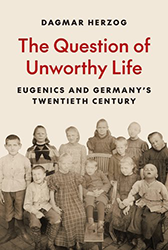April 23, 2012
When the historian Tacitus wrote a not-too-flattering little book about the ancient Germans in 98 CE, at the height of the Roman Empire, he could not have foreseen that the Nazis would extol it as a bible, nor that Heinrich Himmler, the engineer of the Holocaust, would vow to resurrect Germany on its grounds. Yet the Germania had inspired and polarized readers long before the rise of the Third Reich. After its mysterious rediscovery in the 15th century, European intellectuals found therein the German past: simple, heroic, moral, and pure. Re-read and re-interpreted by subsequent generations of writers, inside and outside Germany, the Germania profiled the Aryan race and ultimately fueled the Nazis’ Germanic Revolution. A Most Dangerous Book traces the wide-ranging influence of Tacitus’s booklet over a five-hundred-year span and its mutation from moth-bitten manuscript to ideological cornerstone.





